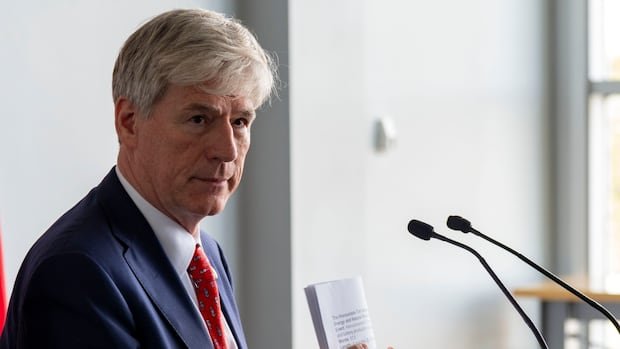Energy Minister Tim Hodgson has downplayed inquiries regarding the potential repeal of the tanker ban in northern B.C. waters, dismissing them as “hypothetical” due to the absence of a formal pipeline proposal from Alberta. Hodgson made these remarks during a press briefing in Montreal on Friday, responding to Alberta’s intention to propose a new bitumen pipeline to the northern coast of B.C., a move that elicited a strong response from B.C. Premier David Eby.
Hodgson stated that if Alberta chooses to be a proponent and invest in a pipeline project, they are within their rights to do so. He emphasized that the government will evaluate the proposal when it is presented, similar to other projects.
Alberta’s rationale for spearheading the pipeline application stems from the lack of private industry investment, citing federal regulations like the 2019 oil tanker restrictions in B.C.’s northern waters. Alberta Premier Danielle Smith highlighted the need for government involvement in the project due to the perceived lack of private sector interest.
In a separate statement, B.C. Energy Minister Adrian Dix emphasized the importance of the tanker ban in safeguarding the province’s coastline and economy. Dix underscored the significance of existing projects that require federal support, labeling them as tangible ventures crucial for economic development.
Eby voiced concerns over the vagueness of Alberta’s proposal and its heavy reliance on government intervention, warning that jeopardizing the tanker ban could pose economic and environmental threats to British Columbia. Meanwhile, Alex Pourbaix, executive chair of Cenovus Energy and a member of Alberta’s pipeline application supervisory panel, refuted B.C.’s assertion that there is no viable business case for the project. Pourbaix stressed the global demand for oil and the necessity for Canada to fulfill this demand.
Looking ahead, Alberta expects to submit its application to the Major Projects Office in the spring of 2026. Discussions surrounding potential reforms to legislation affecting the oil and gas sector are ongoing, with efforts to address concerns raised by various stakeholders, including First Nations communities.


